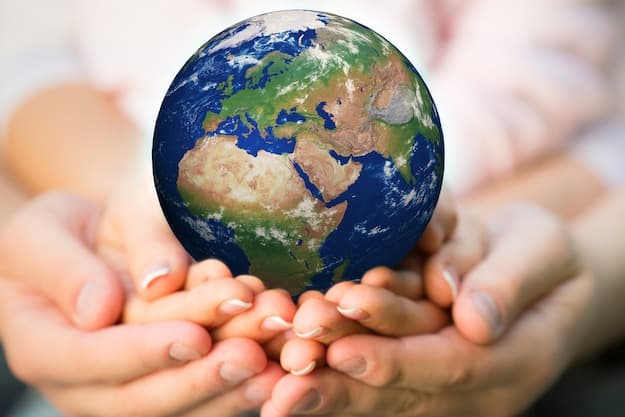
I love this excerpt from Wendyl Nissen’s book A Natural Year, no matter who you are or where you live there’s plenty of ways you can make a difference.
Here is Wendyl’s list of great answers to use when someone says it’s all too hard to bother saving the planet.
They say: This was going to happen anyway, just like the Ice Age. Humans haven’t created this problem.
You say: Tens of thousands of scientist in more than a hundred nations have amassed an overwhelming amount of evidence pointing to a clear conclusion: humans are the main cause. We’re the ones who burn fossil fuels and clear trees that absorb carbon dioxide, sending heat-trapping gases into the atmosphere.
No one questions the link between smoking and cancer, because the science was settled in the 1960s after more than 50 years of research. We can think of the state of human activities and climate change as no different than smoking or cancer. (source: edf.org.)
****
They say: Does anyone really believe this whole global warming thing?
You say: (This is the 30-second pitch climate scientist Illisa Ocko gives in a blog post on blogs.edf.org; feel free to learn it off by heart as I have.) ‘Well first, scientists have known for centuries that certain gases in the atmosphere, like carbon dioxide, prevent the Earth’s heat from escaping into space. In fact, the Earth would be entirely frozen without these natural gases. But second, emissions from human activities like cutting down forests and driving cars, which we can measure directly, are thickening the layer of these gases in the atmosphere, which we can also measure directly, and this is trapping even more heat in the Earth and warming up our planet. Thousands of scientists worldwide are in agreement that this is happening. Third, observations of increasing temperatures, sea level rise, and melting glaciers confirm this added warming.’
And here is her evidence, in case you have a real hard-case sceptic on your hands:
The research falls into nine independently studied, but physically related, lines of evidence:
simple chemistry – when we burn carbon-based materials, carbon dioxide (CO2) is emitted (research beginning in 1900s)
basic accounting of what we burn, and therefore how much COs we emit (data collection beginning in 1970s)
measuring CO2 in the atmosphere and trapped in ice to find that it’s increasing, with levels higher than anything we’ve seen in hundreds of thousands of years (measurements beginning in 1950s)
chemical analysis of the atmospheric CO2 that reveals the increase is coming from burning fossil fuels (research beginning in 1950s)
basic physics that shows us that CO2 absorbs heat (research beginning in 1820s)
monitoring climate conditions to find that recent warming of the Earth is correlated to and follows rising CO2 emissions (research beginning in the 1930s)
ruling out natural factors that can influence climate like the sun and ocean cycles (research beginning in the 1830s)
employing computer models to run experiments of natural versus human-influenced simulations of Earth (research beginning in 1960s)
consensus among scientists who consider all previous lines of evidence and make their own conclusions (polling beginning in 1980s).
****
They say: We’ll never get off fossil fuels, the oil companies are too powerful.
You Say: Yes, oil companies are extremely powerful, but then so too were slave owners, yet a moral revolution stopped that. Consumer power also means that if we all switched to electric cars, they would have no customers.
****
They say: It’s too late to change anything.
You say: Imagine if our ancestors had said that instead of fighting Hitler in World War II. The fight to stop the climate crisis is a war and the frontline is everywhere. By not acting, you are allowing the climate crisis to continue. Mobilisation is something everyone can do. And to quote Greta Thunberg in an interview she gave The Guardian: ‘Most studies show that it is still possible within the laws of physics to avoid worst case scenarios. But it is not possible if we go on like today. And there is a possibility that there are positive feedbacks too, once we start to act. We don’t know.’



About The Author: Callumfatweb
More posts by Callumfatweb